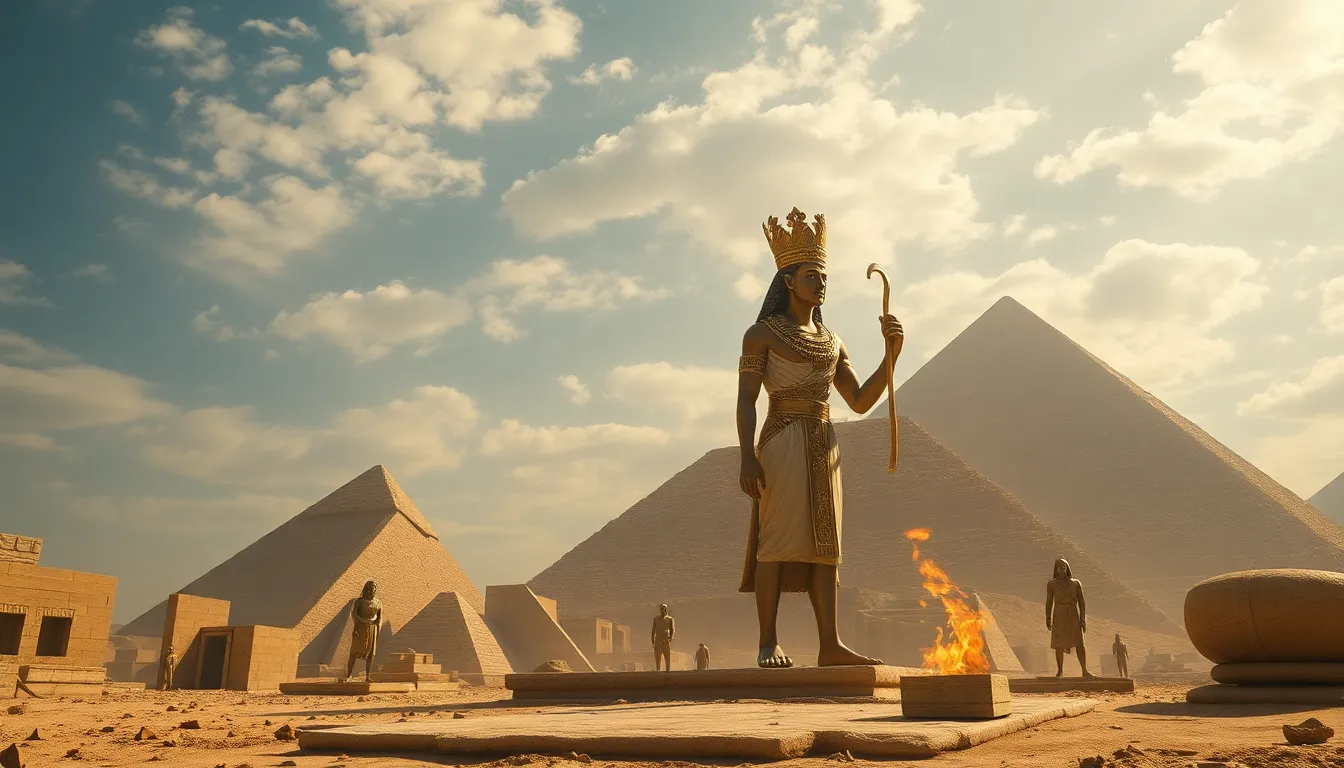The Role of Magic in Egyptian Religious Practices
I. Introduction
Magic held a pivotal role in the religious practices of ancient Egypt, serving as a bridge between the mortal realm and the divine. In the context of ancient Egypt, magic can be defined as the use of supernatural powers and rituals to influence the natural world and achieve desired outcomes. It was deeply woven into the fabric of Egyptian religion, affecting everything from daily life to funerary customs and cosmological beliefs.
This article aims to explore the multifaceted significance of magic within Egyptian religious practices, delving into its historical context, types, and the roles of various practitioners, as well as examining its connection to deities and the afterlife.
II. Historical Context of Magic in Ancient Egypt
The roots of magical practices in Egyptian culture can be traced back to the prehistoric period, where early forms of magic were likely tied to fertility rites and agricultural cycles. As Egyptian civilization evolved, so too did its magical practices, reflecting changes in society, politics, and religion.
Throughout different dynasties, the understanding and application of magic transformed, often influenced by interactions with neighboring cultures such as the Nubians and the Greeks. Each era brought new interpretations and practices that enriched the already complex magical traditions of Egypt.
III. Types of Magic in Egyptian Religion
In ancient Egypt, magic was categorized broadly into several types:
- White Magic: This form of magic was considered benevolent, aimed at healing, protection, and blessings. White magic was used in rituals to invoke the favor of gods and secure good fortune.
- Black Magic: Contrarily, black magic was associated with malevolent forces, curses, and harm. It was feared and often linked to the intentions of those who sought to manipulate others for selfish gain.
- Ritual Magic: This type involved formal ceremonies and intricate rituals, often performed by priests. Ritual magic was crucial in temple worship and was believed to maintain the favor of the gods.
- Everyday Magic: Common people engaged in everyday magic practices, using spells, charms, and amulets to protect themselves and their families from misfortune.
IV. The Role of Priests and Magical Specialists
Priests in ancient Egypt were often the primary practitioners of magic. They held significant responsibilities, including:
- Performing rituals to appease the gods and ensure cosmic order.
- Conducting healing ceremonies and blessings for the community.
- Overseeing funerary rites and the preparation of the deceased for the afterlife.
In addition to priests, there were specialized magical practitioners, such as magicians and healers, who were trained in various magical arts. These individuals often underwent rigorous initiation processes to gain knowledge and legitimacy in their practices. Their expertise was sought for personal and communal issues, making them crucial figures in society.
V. Magical Texts and Artifacts
Magical practices in ancient Egypt were supported by a wealth of texts and artifacts that provided instructions, spells, and incantations. Some key elements include:
- The Book of the Dead: This collection of spells and prayers was intended to guide the deceased through the afterlife, ensuring safe passage and protection against malevolent forces.
- Amulets and Talismans: These objects were imbued with magical properties and worn for protection, health, and good fortune. Common amulets included the ankh, scarab, and Eye of Horus.
- Inscriptions and Spells: Temples and tombs often featured inscriptions of spells and magical texts, which were believed to invoke divine protection and blessings.
VI. Magic in Funerary Practices
Magic played a critical role in ancient Egyptian funerary practices, as it was believed to facilitate the deceased’s journey to the afterlife. Key aspects include:
- Burial Rituals: The use of magic was prevalent in burial practices, with various spells and rituals performed to ensure a safe transition for the deceased.
- Spells for the Afterlife: Specific spells were recited to protect the deceased from dangers in the afterlife and to grant them eternal life.
- Examples of Magical Practices: Tombs were often decorated with magical texts, and offerings were made to appease the spirits of the dead.
VII. The Intersection of Magic and Deities
In ancient Egyptian religion, magic was closely associated with various gods and goddesses. This connection underscored the belief that divine magic was essential for maintaining order in the universe (Ma’at). Notable deities linked to magic include:
- Thoth: The god of wisdom, writing, and magic, Thoth was often invoked in magical rituals and known for his role as a mediator between gods and humans.
- Isis: As a goddess of magic and healing, Isis was revered for her powerful spells and protective abilities, particularly in funerary contexts.
Their association with magic exemplified how the Egyptians believed that the divine realm directly influenced their lives and the cosmos.
VIII. Conclusion
Magic was an integral aspect of ancient Egyptian religion, shaping their understanding of the cosmos and their place within it. From the rituals performed by priests to the spells inscribed in tombs, magic was a powerful tool that connected the living with the divine. The legacy of these magical practices continues to capture the imagination of modern audiences, influencing contemporary perceptions of ancient Egypt.
For those interested in delving deeper into this captivating subject, further reading and research can be pursued through academic texts on Egyptian religion, studies on magical practices, and explorations of archaeological findings related to magic in ancient Egypt.




